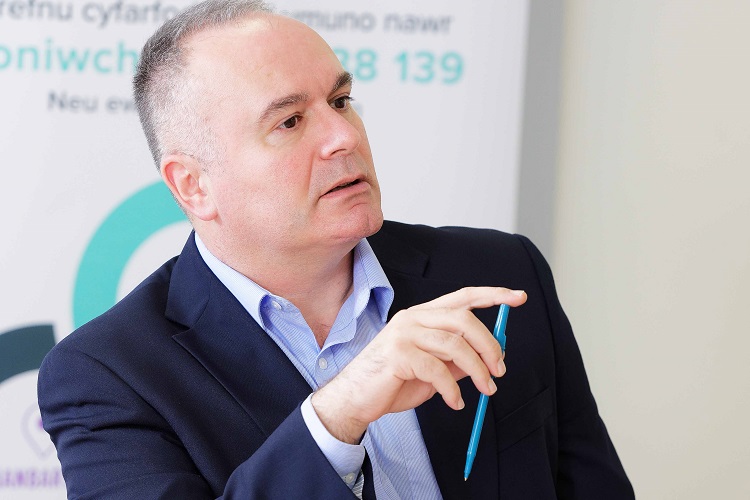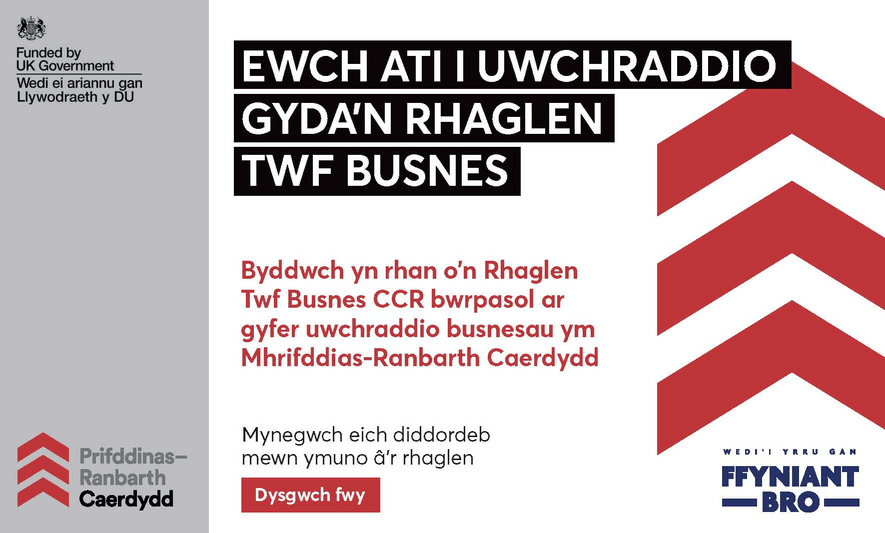Covid-19 has been a very challenging time for Wales’ small businesses. Some of the sectors most seriously affected by the pandemic – tourism, hospitality, retail – have a high proportion of small businesses, many of which have struggled to survive through the lockdown.
At the Federation of Small Businesses (FSB) Wales, they have been working hard since the beginning of the lockdown to help businesses through the crisis.
“I’ve never known a time like it,” said External Affairs Advisor Amy Bainton.
“We’ve had very difficult conversations with some firms that have lost all of their business overnight, and trying to find a way to give them a path through this.
“We’ve also been privileged to see how many of our members have turned their business model on its head and done something very different, whether that’s getting involved in the supply chain for PPE, or supporting members of their community.”

Besides directing businesses to the best places to find support, FSB Wales has been busy lobbying the Welsh Government to widen the financial assistance available to small businesses. Development Manager Rob Basini paid tribute to ministers for their initial speedy response, but said too many businesses had fallen into the cracks between different support schemes.
“A huge amount of money was made available really quickly, but the result of that being made available so quickly was that there were some gaps which remained… we are still lobbying and doing our best to get support for small businesses where gaps remain, but the situation or those businesses is extremely worrying,” he said.
One of those gaps that became quickly apparent affected self-employed people who had been trading for less than a year, because they weren’t covered by the UK Government’s Self-employment Income Support Scheme. FSB Wales lobbied hard to get the Welsh Government’s Economic Resilience Fund to fill the gap, and from last week small businesses less than a year old have been able to apply for a £2,500 Start-up Grant.
While financial support has been a crucial lifeline, what businesses really want is to get back to trading. In its Reopening Wales document, FSB Wales called for a multi-phase approach to easing the lockdown, including advice on adaptations and continued support for the most vulnerable businesses.

“Broadly speaking members are really keen to be reopening, but it can be quite a nuanced situation. There are cases where because of social distancing it’s not possible to turn the tap back on,” said Rob Basini.
Businesses could take staff off furlough, and then find that because of social distancing they cannot get back up to capacity, at least in the short term. The FSB has been calling for clear guidance on social distancing, and financial support to help businesses make the necessary adaptations.
With shops now able to re-open, attention has turned to the tourism sector where a partial re-opening is expected this month. FSB Wales is keen that businesses that continue to suffer from loss of trade are able to get financial support for as long as they need it.
“We hear many times a day from firms that feel they are really on the edge in terms of their ability to make the most of whatever part of this season is going to be left,” said Amy Bainton.
“I’ve heard from a lot of businesses referring to having to weather three winters in a row. We need to have a serious conversation about how we can help those businesses survive those three winters so they can come back in March next year and be trading again.”
FSB Wales has been calling for a tourism hibernation fund, a loan fund operated through the Development Bank of Wales that allows businesses to take out a loan at a preferential rate, and which they don’t have to start repaying until they are trading again next spring.
“We understand that some firms are reluctant, or worried, about the prospect of taking on debt, so this is about making sure firms can access this funding, get themselves through the winter, and repay it at a time when they are back and running in a way we would consider more normal,” Amy said.
It’s difficult enough for a business to take on debt at the best of times, Rob Basini pointed out. Now the impact of taking on debt is even more acute, as small businesses’ costs are going up because they have to do extra cleaning, they need extra staff to monitor queues, their income is going down because their capacity is lower, and online competition is becoming more intense.
But while many businesses are struggling with these difficulties, there are positives. The increased sense of community which people have noted has led to some customers wanting to buy locally and support their local businesses. Retail and hospitality businesses have adapted their models to take orders online and deliver in their local communities, or to sell take-aways.
“One would hope that consumer behaviour gets embedded,” said Rob Basini.
He particularly wants credit to be given to businesses that have provided life-saving support and services to vulnerable customers – a sentiment echoed by Amy Bainton.
“We’ve heard some really inspiring stories, and the key has always been that these are firms that, at the most challenging time they’ve ever faced, are doing what they can to support their communities because there’s a feeling that we’re all in this together,” she said.
“What we’d really like to say to those communities is how important these businesses are; and we urge people, when they can do so safely, to support those businesses, because we need them and they’re going to need us.”










